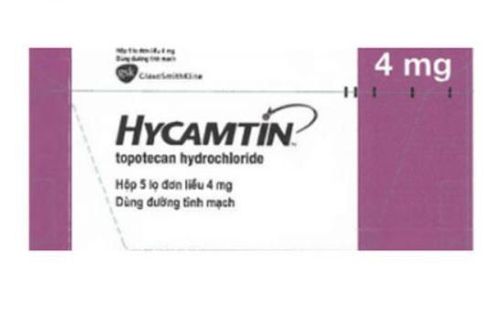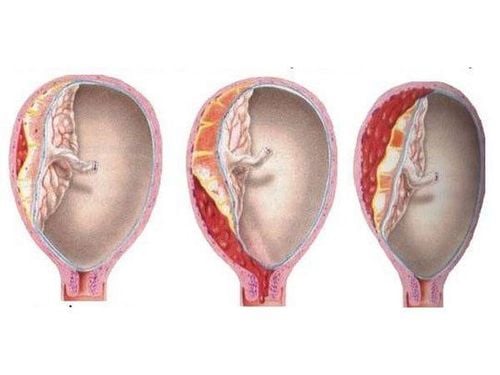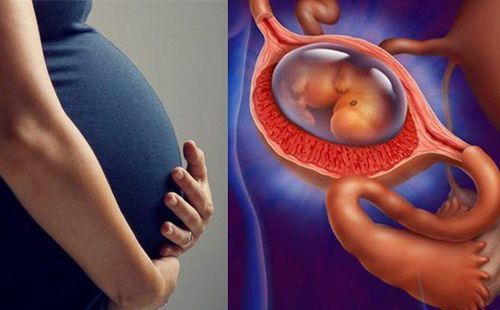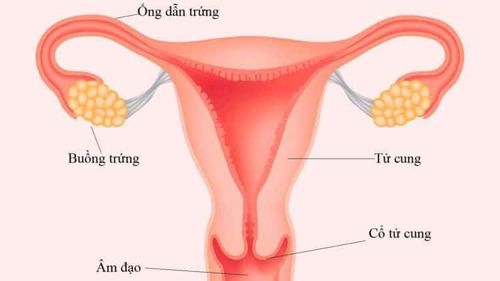This is an automatically translated article.
The article was written by doctors of Internal Oncology - Radiation Oncology Center, Vinmec Times City International General Hospital.Most ovarian cysts are harmless and usually clear up on their own without any treatment. Rarely, certain types of ovarian cysts can develop into ovarian cancer. However, the risk of cysts becoming cancerous is higher in people entering menopause. This article discusses ovarian cysts and explains how they can sometimes develop into cancer.
1. What is an ovarian cyst?
Ovarian cysts are fluid sacs that develop in or on the ovary. The ovaries are part of the female reproductive system. Each menstrual cycle, the ovaries release an egg, or ovum. This process is called ovulation. The ovaries also produce female sex hormones called estrogen and progesterone. Ovarian cysts are fluid-filled sacs that can develop in or on the ovary. Cysts are usually benign, which means they are not cancerous and can go away without treatment. Ovarian cysts are relatively common in people with regular cycles because small cysts can develop spontaneously as part of the menstrual cycle.Ovarian cysts that develop due to ovulation during the menstrual cycle are called functional ovarian cysts. Ovarian cysts are usually not cancerous and cause no symptoms. Often cysts are discovered incidentally during a routine physical exam.
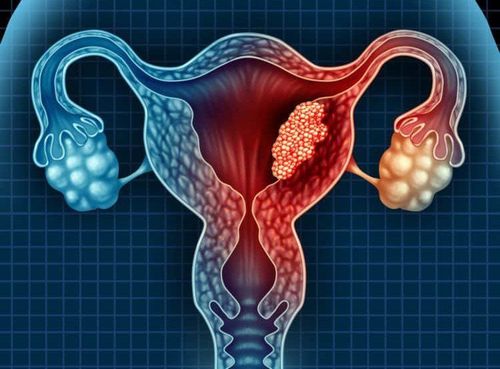
U nang buồng trứng có thể có nguy cơ biến thành ung thư cao hơn ở người đã bước vào thời kỳ mãn kinh
2. Cysts and cancer
Ovarian cysts are less likely to form during menstruation. Menopause marks a woman's period when she stops menstruating. However, if cysts form after menopause, they have a higher risk of becoming cancerous.
3. Pathological ovarian cysts
Occasionally, ovarian cyst cells can grow abnormally and excessively. These are called pathological ovarian cysts. Pathological ovarian cysts can sometimes be malignant, which means they have the potential to cause ovarian cancer. People who have entered menopause have a higher risk of developing pathological cysts.
Certain underlying conditions, such as endometriosis, can also cause pathological ovarian cysts. Endometriosis is a condition in which the cells lining the uterus appear outside the uterus, such as in the ovaries and fallopian tubes.
4. Ovarian cancer
Ovarian cancer occurs when cells in the ovary grow and multiply in an uncontrolled way to form a tumor. If left untreated, these tumor cells can spread to nearby tissues and other places in the body.
5. Ovarian carcinoma
Different types of ovarian cancer can develop depending on which part of the ovary the cancer begins. An epithelial ovarian tumor is the most common type of ovarian cancer and begins in the cells on the outer surface of the ovary.
6. Symptoms of Ovarian Cysts and Ovarian Cancer
People with ovarian cysts often experience few or no symptoms. The early stages of ovarian cancer may also cause no or only minor symptoms.
Cramping when lying down Feeling discomfort in the abdomen. However, if an ovarian cyst is very large, ruptures or blocks the blood supply to the ovary, it can cause symptoms similar to ovarian cancer such as:
Pelvic pain, such as pain dull or sharp pain in the lower abdomen Abdominal discomfort, such as bloating and heaviness Feeling full quickly after eating Loss of appetite Or urinating often or having to go immediately, quickly Pain during sexual intercourse Anyone with These symptoms should see a doctor as soon as possible.
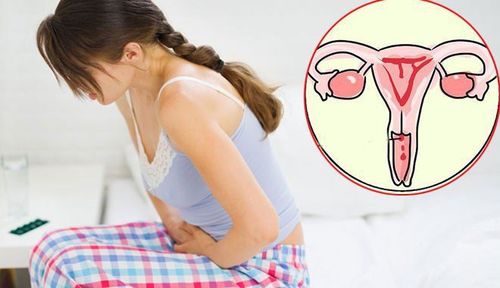
Đau nhói vùng bụng dưới có thể là triệu chứng của bệnh u nang buồng trứng
7. Diagnosis
To diagnose an ovarian cyst, your doctor may perform an ultrasound and do some of the following tests:
Transabdominal ultrasound. Test for tumor marker CA125 (usually elevated in ovarian cancer). However, not everyone with high CA 125 levels gets ovarian cancer. Other conditions can also produce high levels of CA 125, like pelvic infections, fibroids, endometriosis, during menstruation....
8. Treatment
Whether a person with a cyst may need treatment depends on:
The size and appearance of the cyst Clinical symptoms, whether menopause...
9. Follow up closely
Your doctor may suggest simply keeping an eye on the cyst (pelvic ultrasound) and waiting to see how it progresses without treatment.
10. Drugs
Sometimes birth control pills may not reduce the size of a cyst, but can help prevent it from getting worse. However, it is necessary to have specific advice from a doctor, patients should not buy and drink by themselves.

Trao đổi với bác sĩ chuyên khoa về quá trình theo dõi cũng như điều trị
11. Consider surgery
When the tumor is very large or growing, persists and persists after taking medication, or is interfering with a woman's plans to have children, seems abnormal, causes symptoms, such as such as pain.
Depending on the type of cyst, surgical options include removal of the cyst, removal of the ovaries, uterus, etc.
Summary: Ovarian cysts are relatively common and can form spontaneously. During a woman's menstrual cycle, most ovarian cysts are harmless, noncancerous, and usually, do not require treatment.
Ovarian cysts that form after a person enters menopause have a slightly higher risk of ovarian cancer. Anyone who has an ovarian cyst and begins to experience severe, persistent, or unusual symptoms should see a doctor as soon as possible.
The usual treatment for ovarian cysts is close monitoring. If a cyst is causing uncomfortable symptoms, becomes cancerous, or is interfering with pregnancy or pregnancy, your doctor may recommend surgical removal.
To protect their own health, women should go to a gynecological examination at least once a year to proactively screen and detect gynecological cancer early, avoiding negative consequences.
Please dial HOTLINE for more information or register for an appointment HERE. Download MyVinmec app to make appointments faster and to manage your bookings easily.
Source: medical new today




